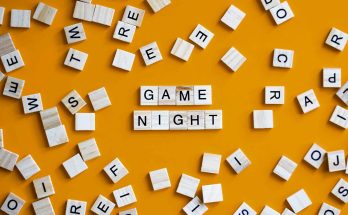For decades, word puzzles have been primarily enjoyed through physical mediums like newspapers, puzzle books, and magazines. These classic paper-and-pencil puzzles provided a fun linguistic challenge for solvers of all ages. However, the rise of mobile gaming in the 2000s completely transformed the word puzzle landscape, breathing new life into this beloved genre. From the convenience of smartphones to creative new gameplay mechanics, mobile gaming opened up word puzzles to a new generation of players while reinvigorating interest for lifelong enthusiasts.
The Portability Factor
One of the biggest impacts of mobile gaming on word puzzles was the incredible portability and accessibility it provided. Instead of being tethered to the bulky puzzle books or newspapers of yesteryear, players could now enjoy their favorite linguistic brainteasers anytime, anywhere right on their phones. This seamless integration into modern life was a game-changer.
Commuting on public transit? Pull out your phone and knock out a few crossword or jumble puzzles. Waiting in line at the grocery store? Get in a quick round of Wordle or Spelling Bee. Previously underutilized pockets of downtime could now be filled with mentally stimulating puzzle play. This opened the door for casual gamers to develop and nurture a word puzzle habit much more easily than before. No longer did one have to consciously set aside a block of dedicated time and space to enjoy their favorite puzzles – they could be solved in bite-sized chunks throughout the day.
Wider Social Reach
Beyond just portability, mobile gaming also exposed word puzzles to a vastly wider audience through social sharing and virality. Digital word puzzles like Wordle saw meteoric rises in popularity when fans took to Twitter and other online platforms to share their daily results with followers. This kind of effortless social sharing formed a cultural zeitgeist around certain puzzles and turned them into global phenomena.
Players found joy in seeing their successes publicly displayed through their shared results and in comparing performances with friends, family, and even total strangers online. Word puzzles evolved from being a fairly solitary endeavor into a more communal experience. This enhanced social experience lowered the barrier for casual players to get invested in puzzles through some light-friendly competition and camaraderie.
Going Free-to-Play
When many of these digital word puzzles first hit mobile app stores, they stuck to a fairly traditional pricing model by requiring an upfront paid download, just like buying a physical puzzle book. However, developers quickly realized the power of free-to-play games with ads or in-app purchases for mobile gaming. This more accessible pricing opened up word puzzles to a whole new base of players who may have been unwilling to pay up-front costs.
By removing financial friction, casual players could simply download free word games on a whim and be immediately immersed in these language-focused puzzles. If they ended up truly enjoying a particular game, many were happy to pay for small upgrades like removing ads or unlocking additional puzzle packs. But the free-to-play model allowed them to easily sample a variety of word puzzles with no risk beyond a few minutes of their time. This try-before-you-buy approach was perfect for introducing the genre to a new generation raised in the mobile era.
Creative Gameplay Twists
Of course, simply porting already existing word puzzles to a digital format was not the only way mobile gaming transformed the genre. The massive popularity of mobile games empowered developers to get creative with classic word puzzles by introducing novel gameplay mechanics and twists. These innovative new takes helped breathe fresh life into games that may have started feeling a bit stale.
For example, games based on the concept of finding words from a set of jumbled letters were given new dimensions with additions like:
- Head-to-head multiplayer battles
- Wide open infinite puzzle modes
- Dynamic word scrambling during gameplay
- Unique tile-swapping mechanics
- Dozens of thematic keyword categories or storylines
These departures from traditional anagram solvers added layers of progression, competition, and replayability that made them even more enticing for mobile players looking for some quick linguistic fun. In addition to simply finding solutions, players now strategized about optimal moves, raced against time or opponents, and chased high scores or achievements. Classic puzzles had been transformed into dynamic mobile games that satisfied our innate drive for competition and measurable accomplishment.
Audio and Visual Flair
Another way mobile games enhanced word puzzles was through audiovisual feedback and theming. While pen-and-paper puzzles were purely text-based affairs, mobile game versions were able to introduce sounds, music, animation, and graphics to add flair to the overall experience. Simple things like applause sound for clearing a puzzle or visual particle effects for impressive word finds helped increase satisfaction.
Beyond just atmospheric touches, some really creative games used deeper audiovisual encoding as core gameplay mechanics. For example, an auditory word game may show players a series of alien symbols and encode the puzzle words through sound clips of their pronunciation. Players had to listen carefully to alien noises, decode the words, and find matches on an abstract glyph board. Without visuals and animations to establish this imaginative sci-fi setting, it would just feel like a regular spelling exercise.
This infusion of audiovisual polish and personality gave mobile word puzzles a level of immersion and charm that drew players in. Combined with the addictive reward loops of level progression and points scoring, these enhanced presentation elements made the games legitimately fun to play beyond just exercising one’s linguistic skills. The humble word puzzle had fully arrived as a modern mobile gaming experience.
Massive Data and Analysis
Of course, the digitization of word puzzles enabled through mobile gaming also opened the door to leveraging big data for insights. Developers could now track and analyze every move, keystroke, and puzzle solution. This broader collection of player data illuminated new opportunities.
For example, deep analytics could reveal commonly misspelled words, trouble areas for letter scrambles, or patterns in how players attempted to solve certain crossword clues. This data could then be fed back into the development process to inform the curation of more intuitive or better-balanced puzzles. It may also reveal entirely new puzzle formats to explore based on observed player behaviors.
Moving beyond just metrics, the digital ecosystems of these mobile games also enabled smoother delivery of bonus puzzles, fresh content updates, community events, and competitions unlike anything feasible in a traditional paper format. Players could enjoy a steady cadence of new challenges delivered seamlessly over the air via cloud services.
Read more: Experience the Thrill: Top 5 Mario Bros Games for Android
The Future of Puzzles
Looking ahead, it’s clear that mobile gaming’s influence will continue shaping the evolution of word puzzles. With the advent of Web3 and blockchain technologies, we’ll likely see a new generation of word puzzles blending vocabulary gameplay with token-based rewards. Players may someday earn cryptocurrency by solving puzzles or even speculate on limited-edition NFT puzzle packs. The possibilities feel limited only by our creativity.
We may also see mobile word puzzles reimagined for immersive augmented reality (AR) experiences. Imagine summoning a life-size crossword grid on your living room floor projected from your phone and physically walking around to fill in clues by tapping floating letters or conceiving word search games that use computer vision to recognize puzzle answers encoded within your real-world surroundings. As spatial computing progresses, puzzles need not be confined to 2D screens.
Additionally, streamers and e-sports companies always look for fresh gaming content categories that engage audiences differently than just watching traditional action gameplay. Perhaps we’ll see the rise of professional mobile puzzle streamers and highly strategic multiplayer show matches as part of the future esports landscape. Words and language could become the next big arena for pro gaming competition.
At the end of the day, mobile gaming will continue to enhance word puzzles in ways we can’t fully predict right now. But the digitization of this genre has clearly opened up new frontiers for cognitive exercise, linguistic learning, and, above all, challenging but accessible fun. Word puzzles were revitalized and future-proofed by embracing mobile gaming, and their journey is still just beginning.



